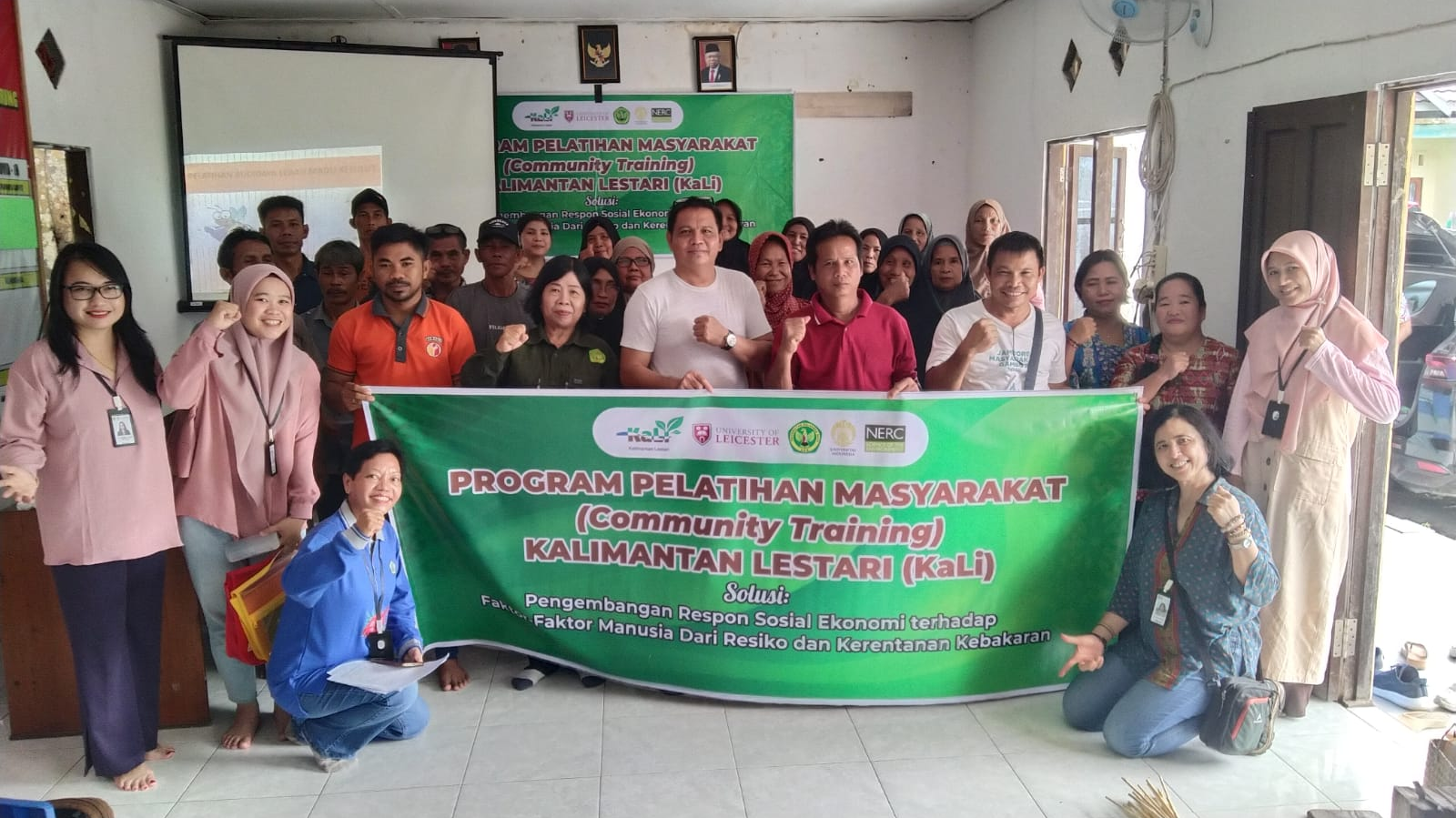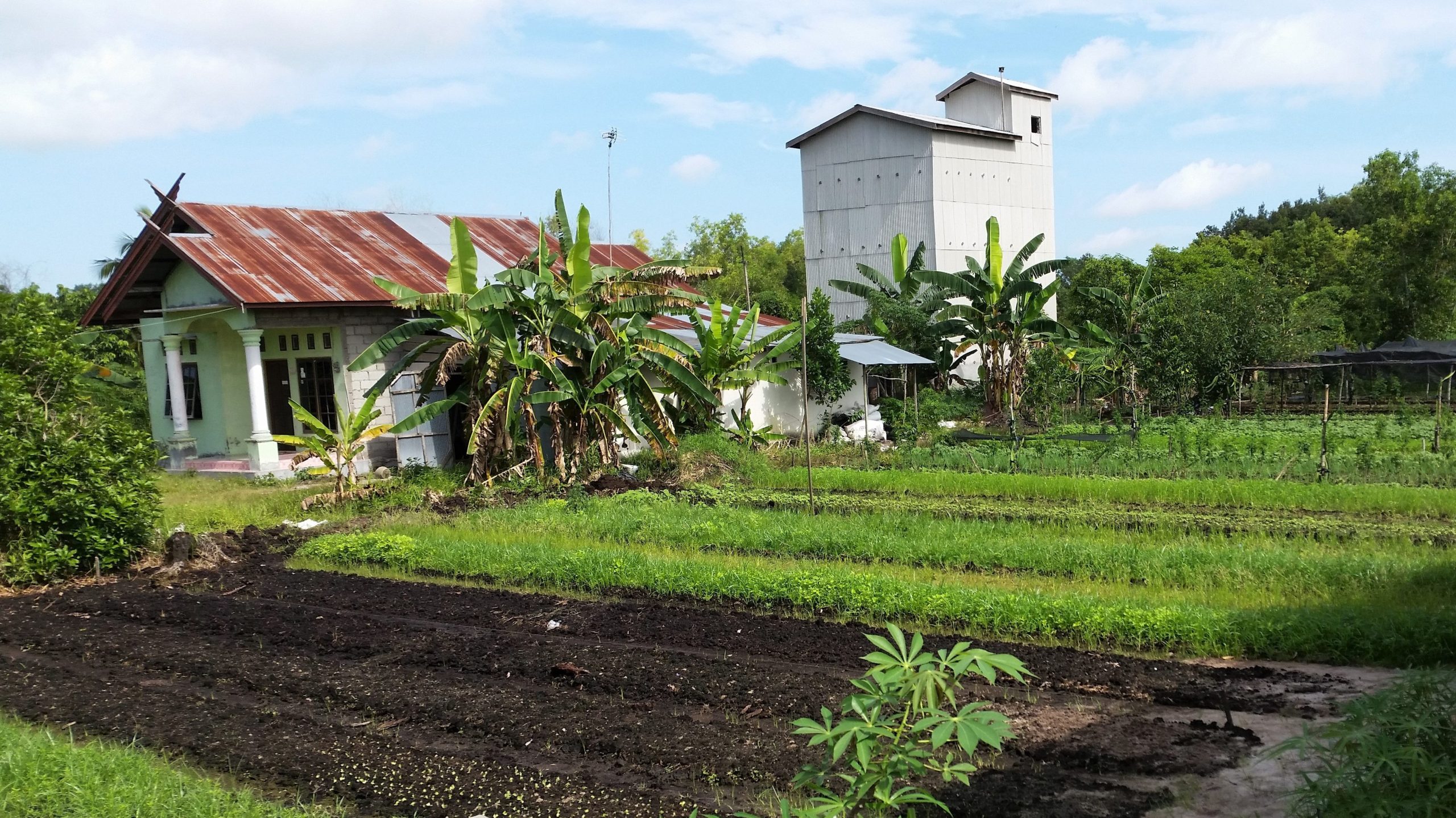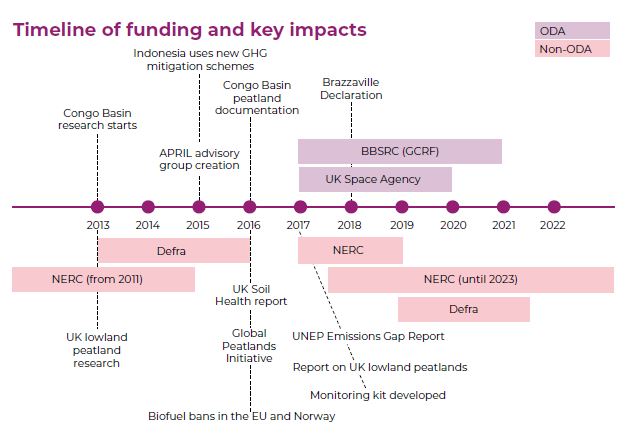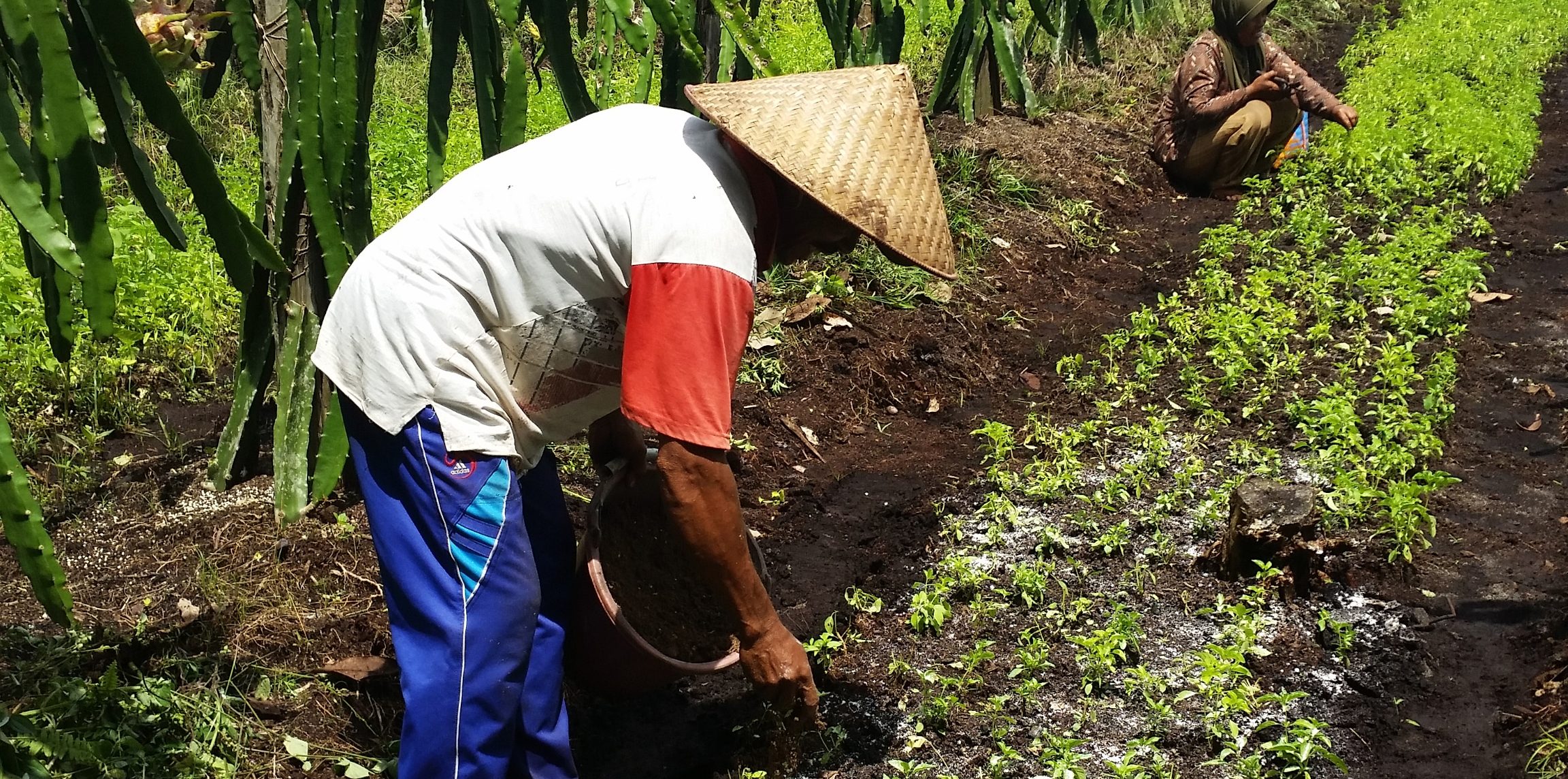How geological research influenced policies and practices in Southeast Asia, the UK, and globally
| Leading University | University of Leicester |
| Location of impact | Democratic Republic of Congo (DRC), Indonesia, Malaysia, Norway, Peru, Republic of Congo (RoC), UK |
| Thematic focus | Geology, physical geography, environmental geoscience |
| Funders | In Europe: European Commission. In the UK: Biotechnology and Biological Sciences Research Council (BBSRC), Department for Environment Food and Rural Affairs (Defra), Natural Environment Research Council (NERC), UK Space Agency |
| Partners | In Indonesia: University of Indonesia, University of Palangkaraya. In DRC: University of Kisangani. In RoC: Marien Ngouabi University. In the UK: UK Centre for Ecology & Hydrology (CEH) |
Case study summary
University of Leicester research on the environmental effects of tropical peatland drainage has influenced international peatland management and greenhouse gases (GHG) reporting. As peatlands are natural ecosystems that store carbon, draining them for agriculture releases carbon as GHG and also raises fire and flood risks. In Southeast Asia, research recommendations influenced policies to protect peatlands and reshape agricultural practices. In Europe, research insights on the damaging effects of peatland deforestation and draining to make way for palm oil plantations influenced regulations on sustainable palm oil imports. Meanwhile, the efforts of Congolese and UK-based researchers to document a newly uncovered tropical peatland – storing three years’ worth of GHG emissions – in the Congo Basin prompted various international agreements. Having worked in Southeast Asian tropical peatlands, researchers from Leicester and the UK Centre for Ecology & Hydrology (CEH) collaborated to explore the lowland peatland systems in England and Wales. Their findings helped shape national soil health guidelines and contributed to UK government reporting on GHG emissions.

Primary benefits in LMICs and globally
Informing peatland drainage and GHG emissions policies
Linking peatland drainage to subsidence, flooding, and GHG emissions prompted calls from NGOs to phase out peatland drainage in Indonesia. Methodologies developed to identify GHG emissions in degraded tropical peatlands were used by the Indonesian government to create mitigation schemes and support the 2015 GHG emission reporting.
Global peatland protection
In 2017, researchers from the University of Leicester and other UK universities documented the extent and amount of carbon storage of an uncovered vast peatland located in a tropical swamp forest in the Congo Basin. This led to the Brazzaville Declaration, an international pledge to protect major peatlands worldwide adopted in 2018 (Congo Basin, Indonesia, and Peru). It also drove the UN Environment Programme’s (UNEP) Global Peatlands Initiative established in 2016, fostering best practices and attracting capacity building funding from Germany and Japan for climate mitigation in Congolese peatlands.
Transforming paper production
Researchers from the University of Leicester and CEH joined an advisory group for Asia Pacific Resources International Limited (APRIL), a major Indonesian pulpwood company. Their input supported APRIL’s new sustainable forest and peatland roadmap and contributed to science-based assessments to advance on responsible peatland operations and the target of net zero emissions from land-use. Between 2019 and 2022 APRIL recorded a 14% reduction in carbon emissions intensity from stationary sources such as fossil fuel and biomass combustion, waste management and others.

Secondary benefits for the UK and globally
Influencing policy discourse
University of Leicester and CEH researchers collaborated on a project to study lowland peatlands in England and Wales. Lessons learned from LMIC contexts helped researchers understand the links between the UK’s agriculture and its peatland degradation. These findings informed Defra’s strategies for reducing peatland emissions and were integrated into evidence that clarified recommendations in the UK Parliament’s Soil Health 2016 report, which advocated against intensive agricultural practices on lowland peatlands.
Enhancing emissions reporting
Research findings and methodology improved the accuracy of the UK’s GHG emissions reports and mitigation assessments which are developed under the UN Framework Convention on Climate Change (UNFCCC) and Kyoto Protocol and published by the Department for Science, Innovation and Technology. Beyond the UK, the methodology for GHG emissions reporting has also supported global emissions projection estimates, such as UNEP’s 2017 emissions reduction potentials report.
Innovating for better monitoring
To overcome data constraints in the monitoring of peatland drainage, CEH developed a cost-effective camera monitoring kit. The kit contains simple camera-based sensors that capture high-resolution changes in peat surface elevation over extended periods. Supported by UK public funding, the kit was implemented in England’s lowland peatlands, enhancing national data collection.
Sustainable biofuels and palm oil
Researchers provided input to the international NGO Roundtable on Sustainable Palm Oil (RSPO), influencing guidelines for oil palm plantations and drainability assessments to reduce GHG emissions from oil plantations on peatland and mitigate subsidence-related flooding risks. Research findings also contributed to the European Parliament’s biofuel ban in 2018 and the phase-out of biodiesel from vegetable oils by 2030. Similarly, they contributed to Norway’s enforcement of a total ban on palm oil-based biofuel procurement.
How secondary benefits unfolded
- University of Leicester and CEH researchers had prior experience conducting studies in Southeast Asia, both collaboratively and independently. Some of these studies ran concurrently with joint research in the UK, facilitating feedback loops between institutions and among the two geographical contexts. For instance, awareness on the relevance to livelihoods of palm oil and pulp plantations in tropical peatlands helped the researchers consider the wider implications of UK peatland drainage for farmers, including societal impacts.
- The methodologies and insights derived from research in Indonesia provided valuable foundations for advancing GHG emissions calculations in the UK, mainly used by Defra and DSIT. Although the environmental conditions and land use practices differ, the fundamental methods were successfully leveraged and adapted.
- The camera kit was initially created to address under-monitoring in Indonesia’s challenging environmental conditions. However, the kit’s low-cost and practical set up has facilitated scalability in the UK and widespread interest has led to potential commercialisation.

